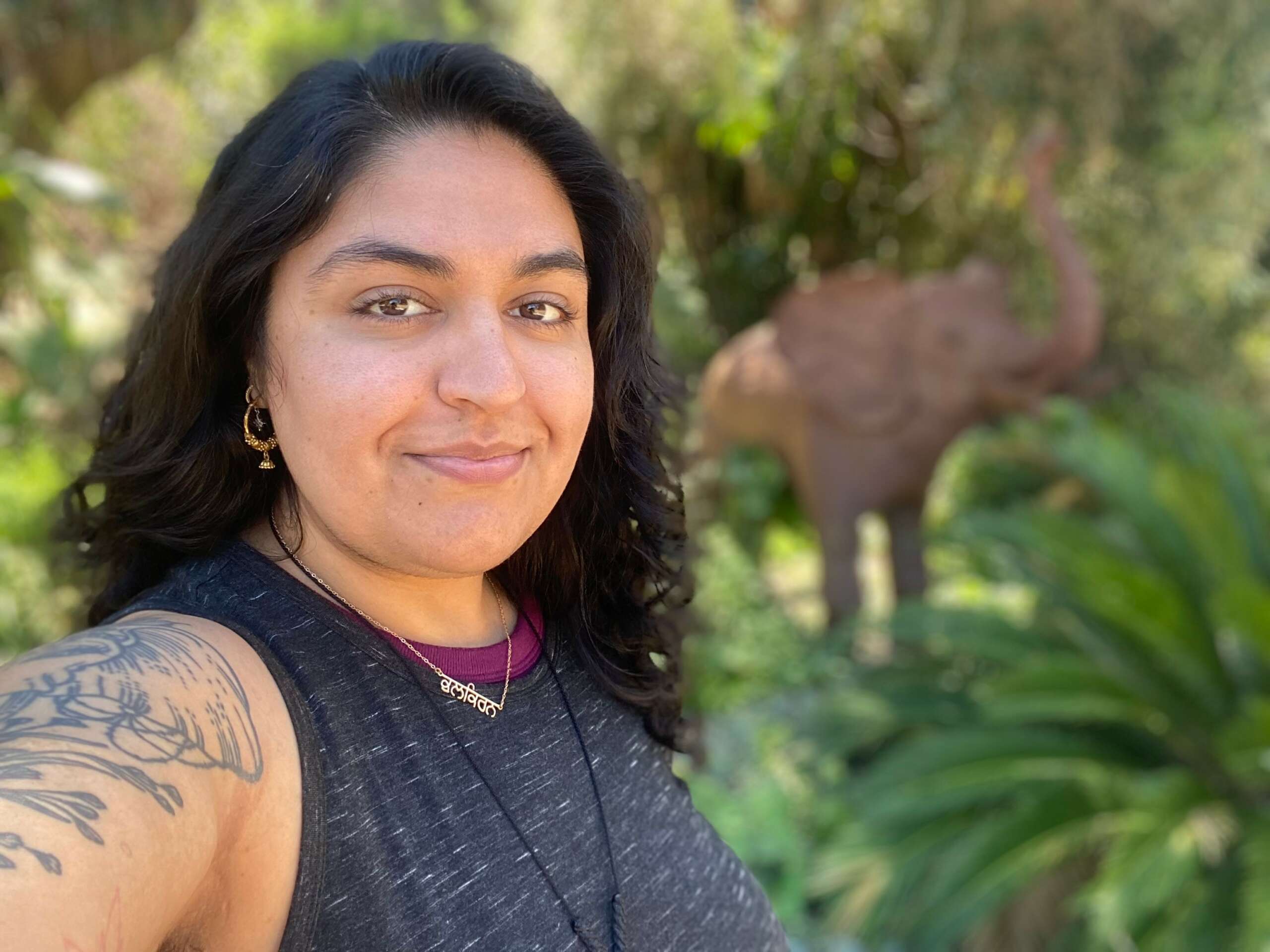We were lucky to catch up with Kulkiran Nakai recently and have shared our conversation below.
Alright, Kulkiran thanks for taking the time to share your stories and insights with us today. How did you get your first job in the field that you practice in today?
As I was finishing up my post-doctoral residency at the University of Michigan, I was fortunate to attend a 5-day intensive retreat on Mindfulness Self-Compassion in the redwood forest of northern California. There I learned valuable life skills and reconnected with nature, with spirit, and with my body. Not soon after, I was invited to join Cornell’s health department as a full-time clinical psychologist. My parents were excited and expected me to proceed with the offer, but I was caught in a dilemma if working in another corporate job was the right move for me.
Not knowing what to do, I reached out to a spiritual guide who named this edge of either walking the path of expectation, which would inevitably end in my demise, or towards the unknown, which would undoubtedly be met with chaos and panic. I could have gone the familiar, known way but I’d still be met with chaos and panic from needing to survive that misaligned choice. Or I could align with my values and vision by going the hard, new way that would ultimately become the path of authentic liberation and belonging to myself.
In an existential crisis of doubt, I called my dad to talk through moving forward with life in the expected ways, but the conversation didn’t go as I had hoped. I came away from that encounter emboldened to decline the job offer from Cornell and to trust my inner knowing. I fondly refer to this life pivot as “going rogue.” To make ends meet, I became a Lyft driver while studying for my licensing exam and getting into performance artivism through improv and drag.
About a month into this new life, I went to a weekend long workshop to prepare me for my psychologist licensing exam. There, I met a Black woman therapist who encouraged me to apply to a radical group practice she was a part of that specializes in offering therapy services for multi-marginalized people through a decolonial, abolitionist, and anti-oppressive framework. I applied and was hired as a therapist after a 20-minute phone call interview with the founder. I started a week later and have been embedded within a vibrant community of therapists ever since.
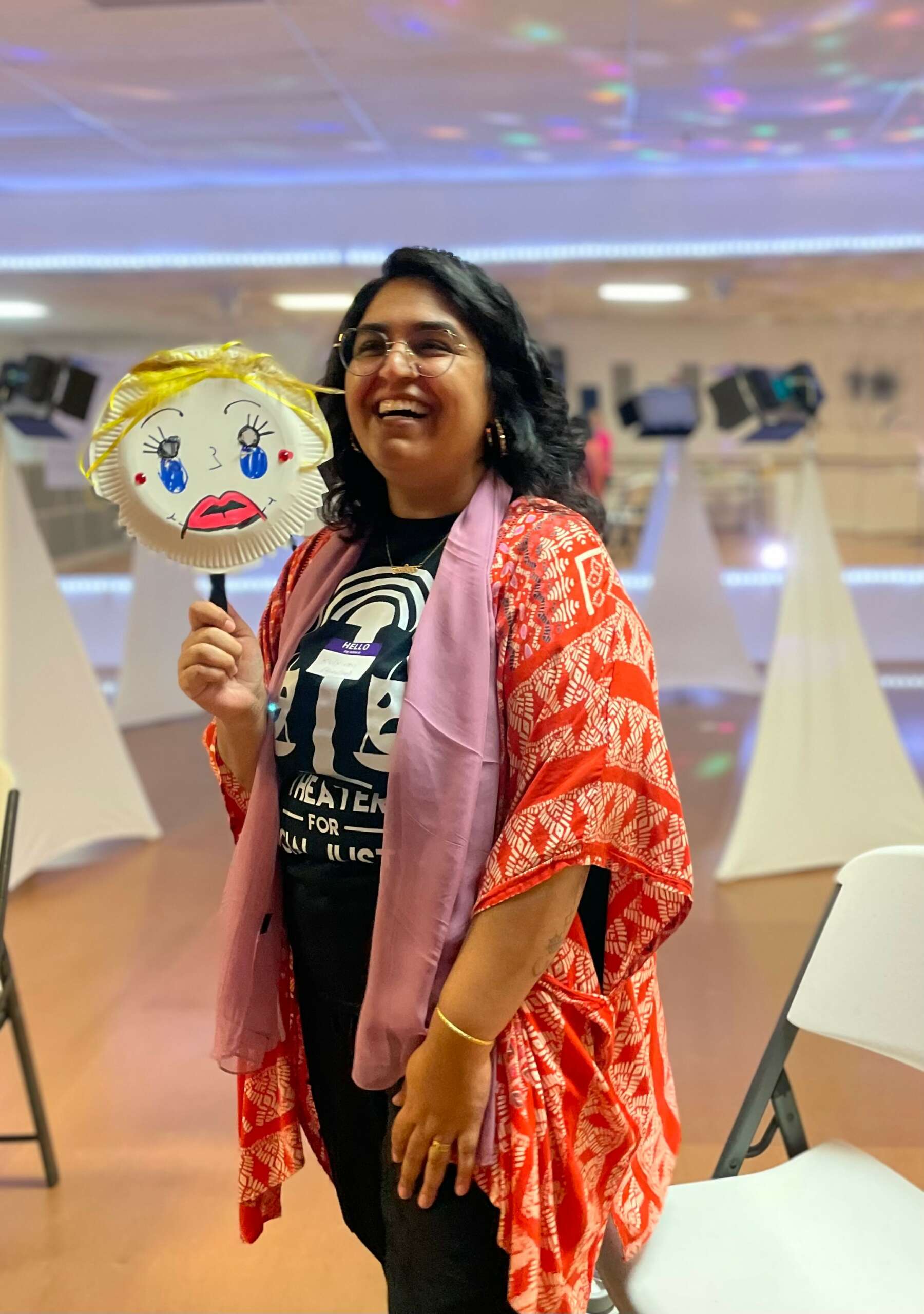
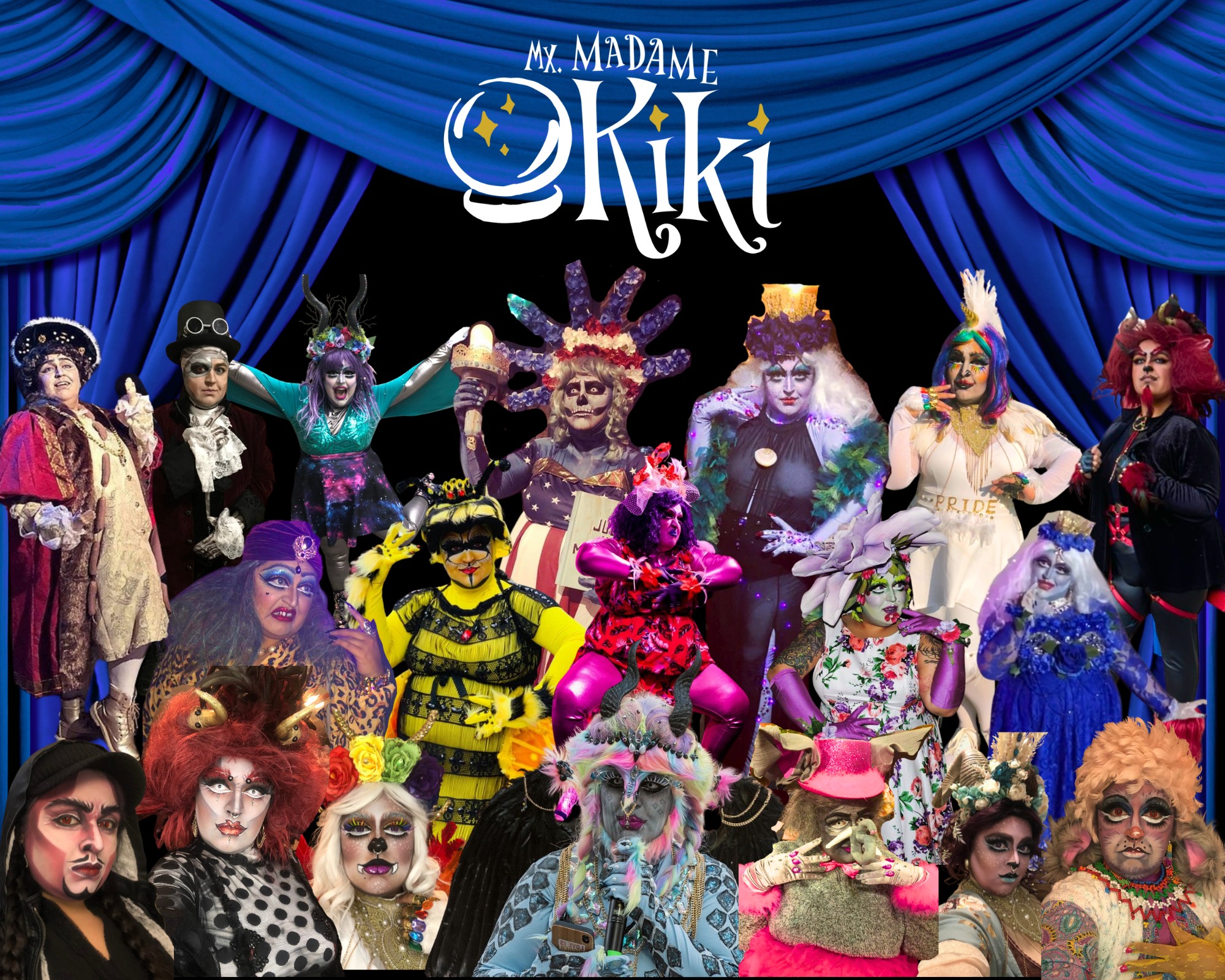
Kulkiran, before we move on to more of these sorts of questions, can you take some time to bring our readers up to speed on you and what you do?
My name is Kulkiran, which means “the rays of light that shine on the family” in Punjabi. The essence of my name and how I playfully embody the meaning behind it is what truly sets me apart from others. The life experiences that have brought me here is my existence as a fat, queer, neurodivergent, Punjabi-Sikh femme who grew up with working middle-class immigrant parents in the midwest of the United States in the mid 1980s into the early 2000s.
Beyond these personal identity markers, I am human first and foremost, but my identity as Sikh continues to shape my core and nurture my life experiences as a community builder and social activist. Sikhism is unique in its origin because it was founded as a response for peace to socio-religious and political turmoil, violence, and chaos over 500 years ago. As Sikhs, it’s important that we model equality and selfless service, live an earnest, moral, ethical, and humble life, hold respect for all identities, honor others’ life choices/paths, and stand up for others in the face of adversity and oppression.
Alongside my identity as Sikh, I identify as an intersectional feminist and liberation-psychologist who is ever-learning and evolving when it comes to my understanding and practice of activism and social justice within a trauma-responsive and abolitionist lens. I first got started in my field by awakening to systemic oppression and injustice as a young child, and by later honoring my greater calling to help liberate and transform the lives of the collective unconscious who are subjugated to live through late-stage capitalism during a global pandemic, multiple genocides, and a climate crisis.
I’ve also been deep in the process of alchemizing personal, collective, & ancestral pain within the belly of the cosmic beast. I am blessed to say that after much time, effort, and support, I’ve come to experience a greater sense of wholeness to integrate and embody my sacred calling as an ethical healing justice practitioner, creatrix, alchemist, spiritual warrior, and performance artivist.
For the past several years, I’ve also participated in multiple intensive trainings to support decolonizing my therapy practice as a healing justice provider starting with Dr. Shawna Murray Browne’s course on Decolonizing Therapy for Black Folx. Currently, I participate in an anti-oppressive and restorative justice consultation program with coach and former criminologist, Michelle Nicole from Passion and Power, to activate the advocacy skills and embodied practices of “call-in” and “call-up” culture when dismantling white supremacy and oppression to transform any space.
To further this work, I also participate in a decolonial leadership course with psychodramatist Dr. Leticia Nieto to learn anti-oppressive facilitation skills that apply her developmental model of liberation to effectively practice courageous engagement when navigating relational rupture and the repair process when stakes are high. I also have the support of Kai Cheng Thom’s work that birthed Loving Justice into the world, alongside applying somatic and indigenous-oriented practices. Lastly, I’m also receiving coaching and consultation with the UK’s Ariane Barnes from Different Women Project on building holistic and empowering DEI workshops with embodied play through improv and movement.
I’m excited to be interviewed by CanvasRebel and share that I recently launched Azaad Healing Justice Studio (AHJS). “Azaad” means “Free” in Punjabi, which comes from the Persian root, “Liberated.” Extending beyond a typical mental health private practice, AHJS serves as an experiential play space for folx who identify as Trail-Blazers, Cycle-Breakers, Freedom-Fighters, & Change-Makers designed to alchemically heal from complex and systemic trauma and to sustainably liberate ourselves and the world from oppressive forces using energy work, depth psychology, Somatic Internal Family Systems (IFS), and spontaneous action methods using Psychodramatic Theater, Sociometry, and Theater of the Oppressed.
Currently, I provide individual, couples, and group therapy for folx who are interested in learning, alchemizing, healing, growing, and evolving in this lifetime. I’m grateful and delighted to have the opportunity to partner with several other healing justice organizations and offer equitable and revolutionary services for collective liberation. Specifically, I serve as a community organizer with Ypsilanti Pride, and a healing justice practitioner with Sarasota’s Theater for Social Justice, Detroit’s Healing by Choice!, and Long Beach’s QTIFS. I am also a collaborator with the Psychedelic Liberation Collective and Asian Psychedelic Collective.
I enjoy co-designing and facilitating specialty workshops and dynamic groups to help heal and transform the soma and the psyche. Some topics of interest include: complex trauma; perfectionism, criticism, shame, mindfulness self-compassion, and loving-kindness; breaking up with codependency and people-pleasing; building sustainable interdependent dynamics in the spirit of mutual aid and community care; exploring the integration of the Self through astrological archetypes; power dynamics, conflict transformation, and loving justice.
Through Healing by Choice, I have also started working with organizations in Detroit supporting youth to embody the roles of leader and social activist in community organizing movements using theater methods. I also serve as a DEI consultant with a local theater company and am preparing to facilitate a series of revolutionary workshops on unpacking unconscious bias and reimagining performance artivism for improvisers. I am especially excited for the workshops and groups that center QT/BIPOC folx for navigating unfinished business when speaking truth to power in the workplace (based on Dr. Kecia Thomas’ “pet-to-threat” theory/phenomenon), and navigating conflict and harm in relationships when it’s not a viable option to repair or engage in an accountability process in real life.
As I continue to unfurl the wings of self-belonging and strengthen my tether to sacred empowerment, I am delighted and grateful to be alive and deepen my legacy to practice protecting human rights, fighting for social justice, and nurturing life that is driven by the divine force of Revolutionary Love. Through rituals of creativity within community, I value actively working on my traumas and biases, unlearning colonial paradigms and practices, and dismantling all systems and empires designed to oppress the marginalized. I am humbled, blessed, and honored to serve life and humanity both playfully and powerfully. I am also eager to be in community with other divine beings who share in the radical vision and values of collective liberation, wholeness, and psycho-spiritual evolution for the greater good.
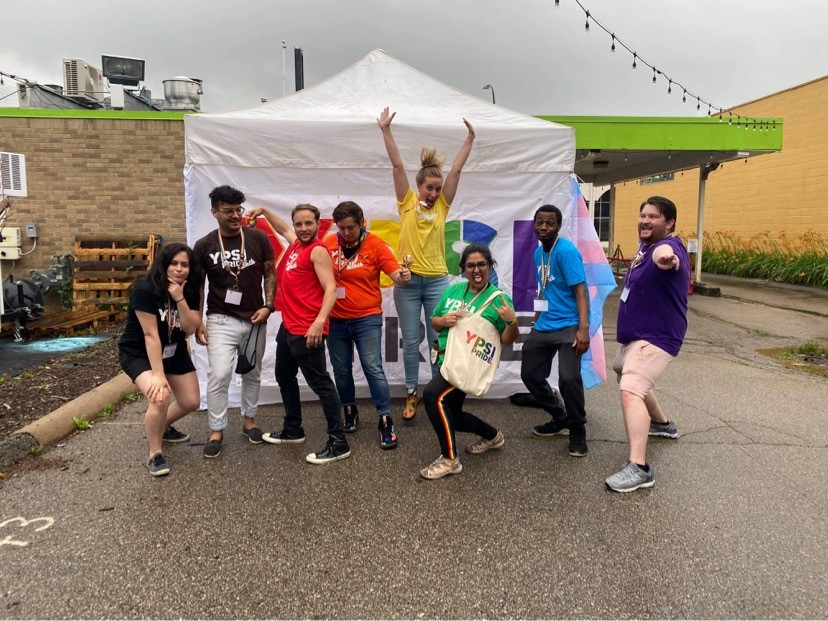
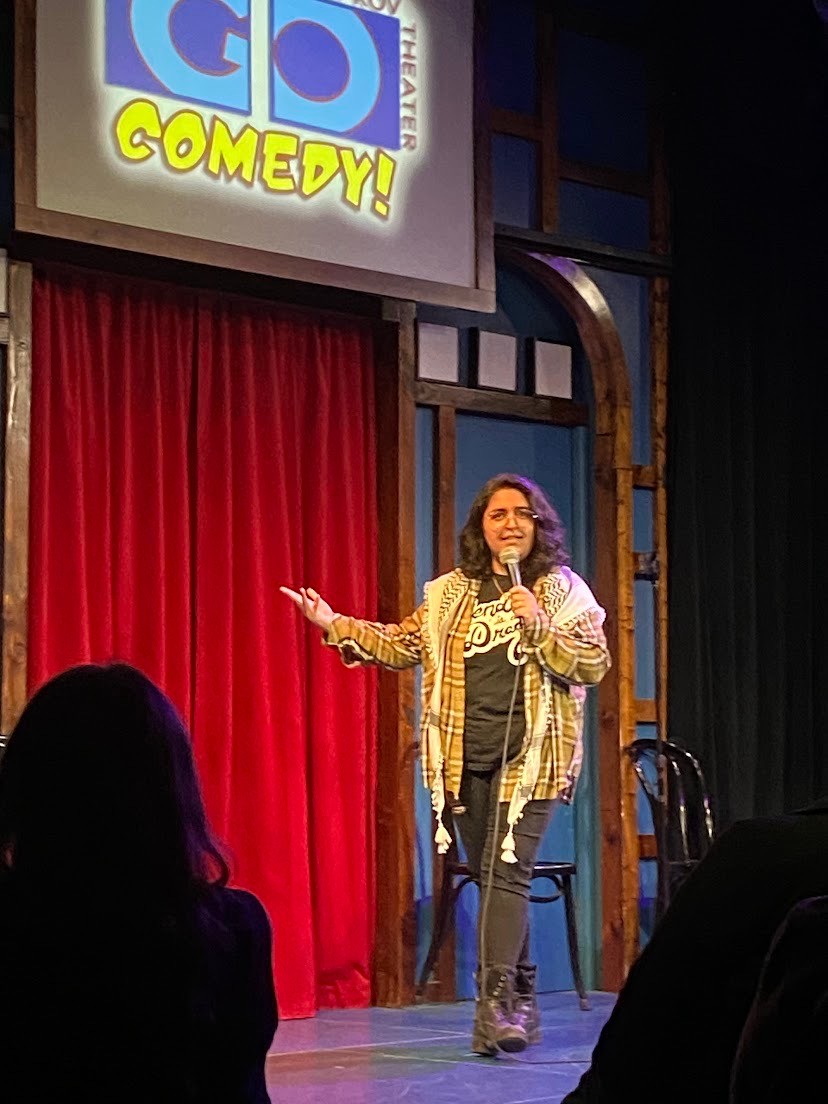
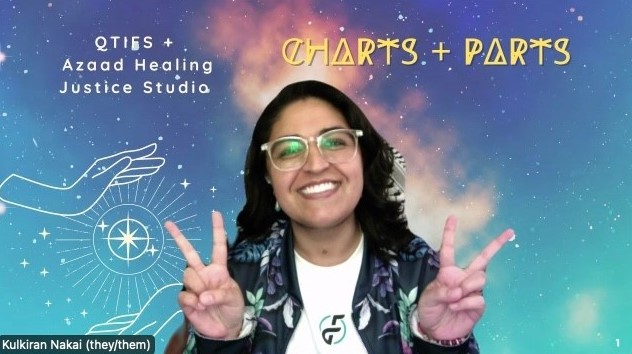
What’s a lesson you had to unlearn and what’s the backstory?
As a liberation psychologist who owns a private practice, one major growth edge for me is continually unlearning and decolonizing my mind and practices around time, energy, and money. I espouse and implement values that are anti-oppressive and anti-capitalistic in my policies, however, I am not exempt from being subjugated to participate in capitalistic and colonial systems.
To decolonize my private practice, I offer pro-bono (i.e., at no cost) sessions, as well as reduced cost or sliding scale options. I invite client-centered installments for paying off any outstanding balances, and I opt out of using collection agencies. I also adopted supplemental policies of waiving the first-time occurrence of a late-cancellation (when notified under the 24-hour window) or missed-appointment per year. Subsequent late-cancellation fees can be circumvented by offering the option for the client to be seen for the first 16-minutes of a 53-minute session and pay the copay amount instead, if using insurance, or a reduced rate if paying out-of-pocket. The late-cancellation and/or missed-appointment fee is also waived if the client and myself can reschedule within the same week.
However, if these options are not viable for whatever reason, then the late-cancellation fee is set at half the amount of a full session, whereas the missed-appointment fee is set at the equivalent of a full session. Insurance can cover any service that was rendered, but they do not cover policy fees incurred by the client. Payment is encouraged before the next scheduled session, but is usually at the convenience of the client’s pay schedule per their request. These decolonial policies and service agreements are outlined in my informed consent forms, are discussed during the initial consultation and intake session, and appear at the bottom of my email signature under disclaimers.
In my time serving as a therapist, I have not seen much modeling of anti-capitalistic values in other private practices. Private practice therapists are typically not salaried and usually rely on receiving income through insurance and/or private-pay. My understanding of late-cancellation and missed-appointment policies is that it is a business standard that is not only meant to support the loss of income for the therapist, but also models boundaries around communication, appointment scheduling, and financial accountability, as this encourages clients to take responsibility for their part of honoring the service agreements and protecting sustainable standards of care.
My private practice also practices decolonial services for when my capacity as a therapist becomes compromised before or during sessions and when emergent accommodations are needed. I am not exempt from being impacted by the stressors of life that are out of my control and that have an impact on my energy and capacity to be present and effective as a therapist. For example, I once had to pause a session with a long-standing client about 20 minutes into the session due to unexpectedly feeling unwell, in which it was becoming harder for me to focus and stay grounded. I provided transparency about this abrupt shift and received consent from the client to hold and bill for a shorter session instead of pushing through, as might be expected under capitalistic agendas. She further added that she was feeling secure enough in our relationship and well-enough in life that she was comfortable to resume at our regular time the week after instead of rescheduling for another time that week.
About a month later, this same client emailed me under the 24-hour cancellation window. I made the grave mistake of not remembering that this was the first-time occurrence of the year, and instead of waiving the late-cancellation fee, I provided the options to either come to session for the first 16-minutes, or reschedule for another time that week to circumvent the late fee. She opted to meet for the first 16-minutes, but during that session, she offered feedback on her frustration and disappointment with the scenario and policies that seemed unfair to her, especially since she extended flexibility and grace when I had to unexpectedly end one of our sessions early a month prior. I was in an ethical dilemma and did my level best to navigate with humility, authenticity, and integrity. Unfortunately, the scenario still resulted in rupturing the therapeutic relationship to a degree that she wasn’t sure if she wanted to continue working with me. Consequently, she opted out and I have not seen or heard from her since.
My greatest oversight in this scenario was not yet having a system in place for keeping track of my unexpected cancellations to then waive my client’s late-cancellation / missed-appointment sessions. I’ve since learned my lesson and rectified my therapeutic error by making an updated excel sheet of “freebies” based on this scenario in which I have to cancel a session unexpectedly, and by deliberately adding this policy of “freebies + waived fees” to my emails when notifying clients of an unexpected cancellation due to compromised capacity. In the event that I’m in the middle of a session and capacity becomes compromised again, my intention is to pause on making any administrative decisions until capacity is restored.
I’m deeply humbled to continue learning with beginners and growth mindsets along these themes of decolonizing my mind and practice as it relates to mutual respect for time, energy, and money.
As a liberation psychologist who owns a private practice, one major growth edge for me is continually unlearning and decolonizing my mind and practices around time, energy, and money. I espouse and implement values that are anti-oppressive and anti-capitalistic in my policies, however, I am not exempt from being subjugated to participate in capitalistic and colonial systems and from making mistakes that can impact the people I serve.
To decolonize my private practice, I offer pro-bono (i.e., at no cost) sessions, as well as reduced cost or sliding scale options. I invite client-centered installments for paying off any outstanding balances, and I opt out of using collection agencies. I also adopted supplemental policies of waiving the first-time occurrence of a late-cancellation (when notified under the 24-hour window) or missed-appointment per year. Subsequent late-cancellation fees can be circumvented by offering the option for the client to be seen for the first 16-minutes of a 53-minute session and pay the copay amount instead, if using insurance, or a reduced rate if paying out-of-pocket. The late-cancellation and/or missed-appointment fee is also waived if the client and myself can reschedule within the same week.
However, if these options are not viable for whatever reason, then the late-cancellation fee is set at half the amount of a full session, whereas the missed-appointment fee is set at the equivalent of a full session. Insurance can cover any service that was rendered, but they do not cover policy fees incurred by the client. Payment is encouraged before the next scheduled session, but is usually at the convenience of the client’s pay schedule per their request. These decolonial policies and service agreements are outlined in my informed consent forms, are discussed during the initial consultation and intake session, and appear at the bottom of my email signature under disclaimers.
In my time serving as a therapist, I have not seen much modeling of anti-capitalistic values in other private practices. Therapists working at a private practice as their sole income are typically not salaried and usually rely on insurance and/or private-pay. My understanding of late-cancellation and missed-appointment policies is that it is a business standard that is not only meant to support the loss of income for the therapist, but also models boundaries around time, energy, and money. This standard also encourages clients to take responsibility for their part of honoring the service agreements including communication and financial obligations.
My private practice also practices decolonial services for when my capacity as a therapist becomes compromised before or during sessions and when emergent accommodations are needed. I am not immune to the stressors of life that are out of my control and that have an impact on my energy and capacity to be present and effective as a therapist. If a cancellation happens unexpectedly, I aim to handle it with transparency, authenticity, and fairness. Recently, I realized I wasn’t keeping track of my own cancellations well enough, so I’ve put in a better system to create an environment where everyone’s time, energy, and money are respected. I’m deeply humbled to continue learning with beginners and growth mindsets along these themes of decolonizing my mind and practice.
Let’s talk about resilience next – do you have a story you can share with us?
As a multi-marginalized person, I’ve had my share of injustice and resilience building since I was very young. I’m not alone in having direct experience with marginalization, discrimination, prejudice, and stigma for these intersecting identities throughout life. I carry a lineage of and am continuously healing deep psychic and somatic scars from the traumatizing impact that oppression has had on my mental health and wellbeing, particularly the wounding of cutting me off from my inner light, my intuition, my body, and my sense of community with others, with spirit, and with nature.
While engaging in activism work in the healing justice communities, I found myself in unsuspected karmic encounters with elder femmes of color who were in positions of power and who demonstrated oppressive leadership styles with the inability to model and navigate accountability processes well. These painful instances resulted in my exiting the organization due to the environment becoming too unsustainable from the unresolved conflict based on the harm that I experienced and from the lack of support to navigate an intense environment and the next steps within the scenario.
I resonated with the archetypal phenomenon of “pet to threat” theory, coined by Dr. Kecia Thomas, a professor and researcher who studied and found that Black women of color in workspaces were first valued and chosen as palatable employees who were agreeable and convenient to people in power, but when Black women would assert and advance themselves, the support from the people in power dwindled and even grew more hostile. The Black women eventually would have to leave the organization as a consequence of speaking truth to power and disrupting the status quo of oppression.
It’s equally important to note that I took the behaviors and choices of these elder femmes of color in positions of power personally due to the subconscious longing for belonging with each of them, alongside holding expectations on them to meet their own standards as public figures in authority positions within healing justice spaces. The moral injuries took my capacity to be curious and closed my heart off to possibilities for understanding and softening due to the provocation of core woundings of betrayal, humiliation, demoralization, and disempowerment.
While all of these individuals and I espouse the same values and vision for collective liberation, none of us are exempt from the subjugation of oppressive conditioning within ourselves and the organizations that we serve. It’s safe to assume that we all inherited intergenerational and collective wounds that built strategies and stories that helped us all to survive. We are not at fault for our programming, however, it is still our individual and collective responsibility to evolve alongside these edges for the benefit of all. Even still, it’s challenging for many to act with integrity when shadows are surfacing and taking over one’s operating system when unconscious biases and power dynamics are at play and unacknowledged in the relationship and the organization.
I’m also learning through my activist experiences that my intentions and efforts to center loving-justice when feeling subjugated to oppressive leadership or organizational operations didn’t matter because of how the delivery of my approach landed on the other’s psyche and soma. While I can’t fully control how I am being perceived and received, I am being appropriately challenged on how to be capacious enough to safely and authentically express myself and receive the expressions of another, while mitigating the experience of the other feeling rejected, criticized, judged, blamed, or shamed. Because of how I was received in my advocacy for justice, the narratives from those in power within these scenarios got flipped by the tactic of D.A.R.V.O. (deny, attack, reverse victim and offender), coined by psychologist Dr. Jennifer Freyd, as a means of egoic protection from perceived threat.
As the person who was harmed, not only was I expected to take the high road and be the bigger person in response to oppressive leadership styles, but I was also later cast in the roles of a scapegoat and villain for illuminating the others’ shadows and shaking up a sense of homeostasis when calling them up (as opposed to calling them out). Consequently, I have been cut-off, silenced, ex-communicated, and labeled as essentially unsafe to the other for speaking out against harm of oppression, for being unwilling to participate in non-consensual codependent power dynamics, and for their projections on my concerns that suggested misuse of power from their leadership.
Through deep shadow work, I learned that I held conditioned tendencies of people-pleasing, fawning, fixing, and perfectionism, as well as colonial, carceral logic through punitive and binary thinking. Because of my own programming and unhealed woundings, I unconsciously contributed to disempowering dramas and storylines of these karmic encounters. I’m still learning how to forgive them for their humanity and myself from the mistakes of pedestalizing sainthood onto my elders, calling them my mentors when that was never the consensual arrangement, and projecting perfection onto human beings who displayed the darker shadows of their own unintegrated wounding that caused turbulent conflict and rupture that came at a great cost. I’m still healing from the experiences of harm by these elder femmes of color and grieving the loss of community while also learning from my earnest accountability attempts that contributed to the impossibility of repair.
I’m also learning from these karmic encounters that folx will be drawn to my light, but not everyone consents to when their shadows become illuminated as a result of being in proximity to me. I’m learning that I won’t be everyone’s cup of tea and, as such, I will be getting into “good trouble,” as civil rights activist John Lewis says, especially with those in power who are not ready to have their feet held to the fire of maintaining integrity within an alchemical evolutionary process of liberation.
Additionally, I’m learning that whatever is in the way is the way, and that these karmic encounters are there to serve as a sacred teacher. This depth work of liberation is inherently messy and nonlinear; relationships will have conflict, so I’m learning how to move through it all wisely and imperfectly. I’ve also learned that when one door closes, another more aligned one opens. I’m grateful and blessed to have met other precious comrades who are showing me that a different, more liberated and empowered way exists and is already being experienced through imperfectly showing up with radical curiosity, compassion, and courage. These are special folx who believe in transformative justice, who have fierce hope that transformation is possible, and who are willing to show up with heart to be radically transformed by the process.
In the end, I am grateful that each of these encounters illuminated the path where some of my darkest and deepest shadows live and have served as divine interventions and grand awakenings into my initiation into wholeness and true authenticity. I have expanded Dr. Thomas’ “pet to threat” theory and redirected it with the support of creativity and community. My resilience looks like being trained in healing justice work, and in performing artivism through drag, improv, and stand-up comedy. Earlier this year, I wrote a 10-minute play about my encounter with Mara (the primordial force of hatred) that will soon become a full length play. My resilience also looks like slowing down, saying no, and engaging in practices like journaling, grieving, dreaming, dancing, crafting, cooking, resting, being one with nature, and being wholesome with others.
Most importantly in my resilience practice, I have actively been building a new and sustainable relationship to pain and suffering, and to joy and pleasure, by understanding the art and practice of alchemy. I’m grateful to release and retire the old roles, stories and strategies of survival, and to reclaiming and co-creating new roles that are more liberatory and empowering alongside others who share in the values and vision for collective liberation through the praxis of Revolutionary Love, as modeled by my teachers and comrades. After all, we can’t have karma without the dharma!
The systemic, personal, and professional experiences of oppression I’ve endured has also served to help me develop and build a unique character to overcome life’s knocks while nurturing my creative life force to transmute psychic pain and transform into power. I am grateful to be here on the other side of some of the hardest healing endeavors I’ve endured so far with newer more authentic and sustainable ways of existing in and contributing well to the world. I am in service to protecting the preciousness of life and to supporting the divine co-creation of living in a more liberated and affirming existence for all sacred beings to belong safely, joyfully, and easefully.
Contact Info:
- Website: https://www.azaadhealingjusticestudio.org/
- Instagram: https://www.instagram.com/azaad.healing.justice.studio/
- Linkedin: www.linkedin.com/in/kulkirannakai
- Youtube: https://youtube.com/playlist?list=PL-UAnDpe8fS12jT2MiZMQuJ9EXYG9oU3u&si=sd7nKI22RViV4g6Q


